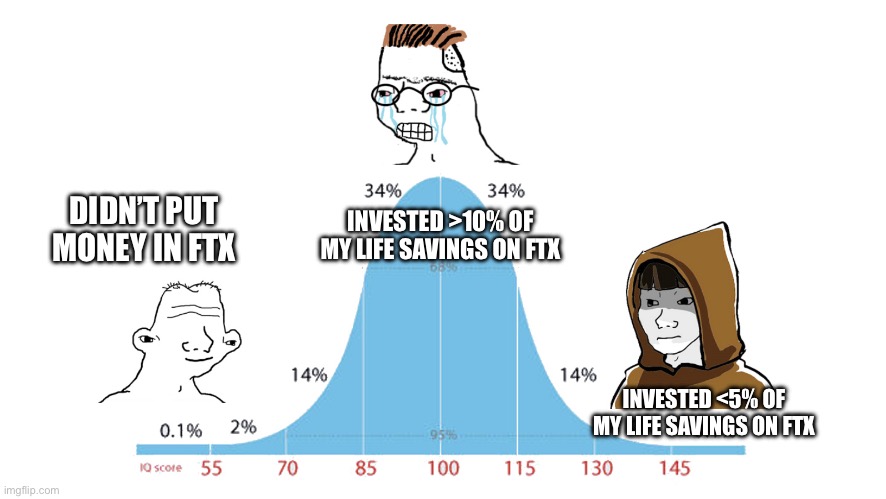Dylan Matthews has an interesting piece up in Vox, 'How effective altruism let SBF happen'. I feel very conflicted about it, as I think it contains some criticisms that are importantly correct, but then takes it in a direction I think is importantly mistaken. I'll be curious to hear others' thoughts.
Here's what I think is most right about it:
There’s still plenty we don’t know, but based on what we do know, I don’t think the problem was earning to give, or billionaire money, or longtermism per se. But the problem does lie in the culture of effective altruism... it is deeply immature and myopic, in a way that enabled Bankman-Fried and Ellison, and it desperately needs to grow up. That means emulating the kinds of practices that more mature philanthropic institutions and movements have used for centuries, and becoming much more risk-averse.
Like many youth-led movements, there's a tendency within EA to be skeptical of established institutions and ways of running things. Such skepticism is healthy in moderation, but taken to extremes can lead to things like FTX's apparent total failure of financial oversight and corporate governance. Installing SBF as a corporate "philosopher-king" turns out not to have been great for FTX, in much the same way that we might predict installing a philosopher-king as absolute dictator would not be great for a country.
I'm obviously very pro-philosophy, and think it offers important practical guidance too, but it's not a substitute for robust institutions. So here is where I feel most conflicted about the article. Because I agree we should be wary of philosopher-kings. But that's mostly just because we should be wary of "kings" (or immature dictators) in general.
So I'm not thrilled with a framing that says (as Matthews goes on to say) that "the problem is the dominance of philosophy", because I don't think philosophy tells you to install philosopher-kings. Instead, I'd say, the problem is immaturity, and lack of respect for established institutional guard-rails for good governance (i.e., bureaucracy). What EA needs to learn, IMO, is this missing respect for "established" procedures, and a culture of consulting with more senior advisers who understand how institutions work (and why).
It's important to get this diagnosis right, since there's no reason to think that replacing 30 y/o philosophers with equally young anticapitalist activists (say) would do any good here. What's needed is people with more institutional experience (which will often mean significantly older people), and a sensible division of labour between philosophy and policy, ideas and implementation.
There are parts of the article that sort of point in this direction, but then it spins away and doesn't quite articulate the problem correctly. Or so it seems to me. But again, curious to hear others' thoughts.



He is saying something about SBF's charitable ventures, of which at least FTXFF is reasonably seen as an EA organization based on the staff list:
There’s a fundamental difference between Bankman-Fried’s charitable efforts and august ones like the Rockefeller and Ford foundations: these philanthropies are, fundamentally, professional. They’re well-staffed, normally run institutions. They have HR departments and comms teams and accountants and all the other stuff you have when you’re a grown-up running a grown-up organization.
. . . .
The good news for EAs is that Open Philanthropy, the remaining major EA-aligned funding group, is a much more normal organization. Its form of professionalization is something for the rest of the movement to emulate. [Elsewhere, the author has kind words for GiveWell as an organization.]
I am less than convinced, though, that this particular criticism is fairly directed at EA as a whole as opposed to SBF in particular. And it may be cultural/generational: how many 30-year old billionaires are going to be interested in passively giving away their wealth and letting Rockefeller/Ford-style bureaucrats decide where it goes? I'm a decade older, and that sort of passivity/disengagement feels awfully unappealing to me.
My take on the author's criticism is to repeat the Cynic's Golden Rule: "He who has the gold makes the rules." If SBF really wanted to do it his way, what was EA-as-a-community supposed to do, refuse to take his money? That's a major downside to hits-based donor development. If the EA movement continues to rely so heavily on a few megadonors, the Cynic's Golden Rule will remain in full force whenever the megadonors wish. It is a testament to Moskovitz and Tuna's humility that Open Phil operates as it does, not an expectation EA can demand of would-be megadonors with its non-existent leverage.